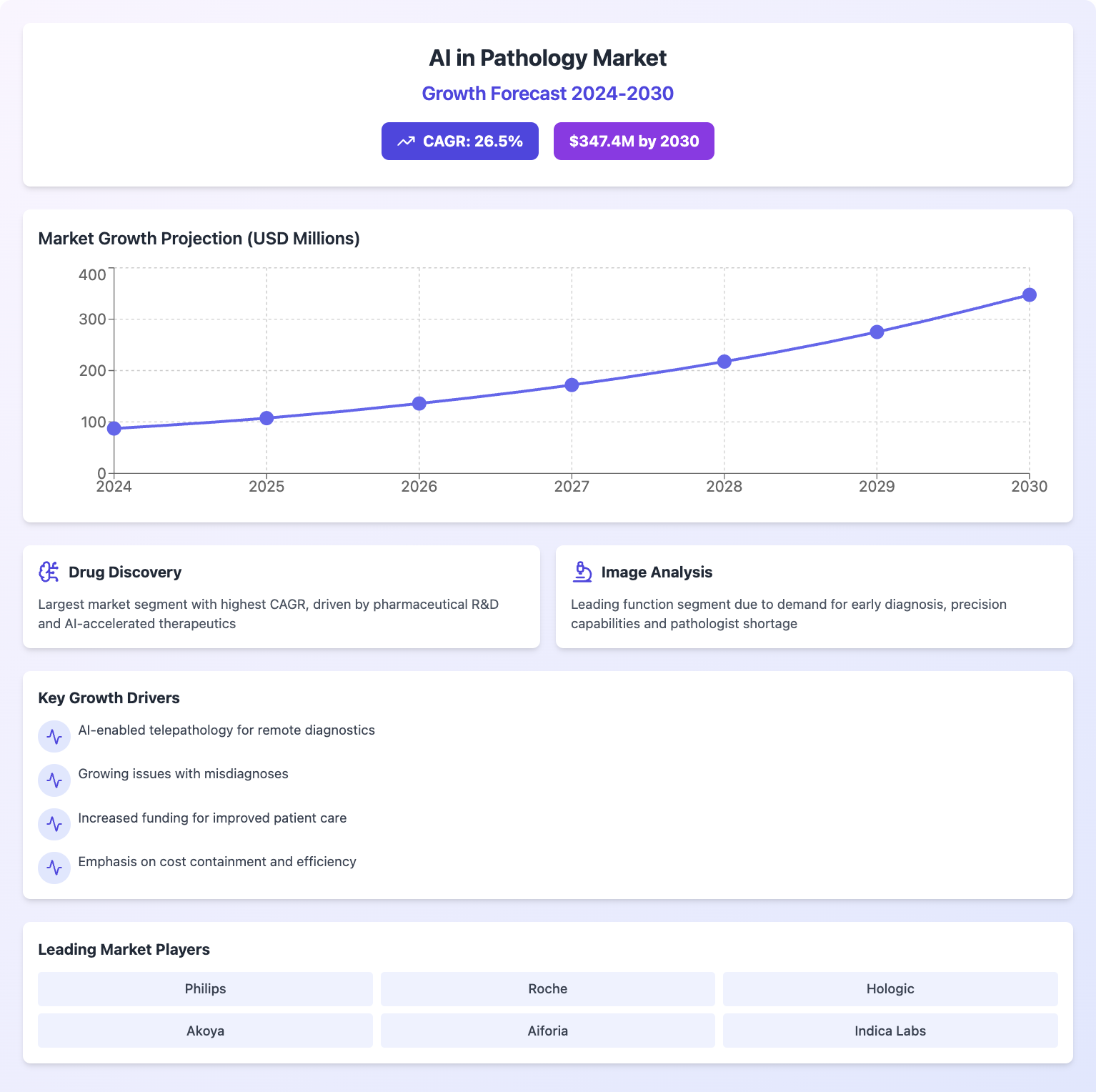AI in Pathology Market to Reach $347.4 Million by 2030

The global AI in Pathology Market, valued at $87.2 million in 2024, is expected to grow at a compound annual growth rate (CAGR) of 26.5%, reaching $347.4 million by 2030, announced in a press release. This growth is driven by the integration of digital pathology with AI-enabled telepathology, which allows pathologists to remotely access and review digital slides, enhancing diagnostic accuracy and collaboration.
The demand for remote diagnostics and expert consultations is increasing, prompting the evolution of AI in the pathology market to provide advanced telepathology solutions. Key growth drivers include the rising demand for high-tech solutions, the need to reduce misdiagnoses, and increased funding to improve patient care standards.
In 2024, the image analysis segment accounted for the largest share of the AI in pathology market, driven by the demand for early diagnosis and precision capabilities. Europe held the second-largest market share, supported by the adoption of AI-based tools in pathology research and drug discovery, favorable government initiatives, and increasing healthcare expenditure.
We hope you enjoyed this article.
Consider subscribing to one of our newsletters like Life AI Weekly or Daily AI Brief.
Also, consider following us on social media:
More from: Life Sciences
Subscribe to Life AI Weekly
Weekly coverage of AI applications in healthcare, drug development, biotechnology research, and genomics breakthroughs.
Whitepaper
Stanford HAI’s 2025 AI Index Reveals Record Growth in AI Capabilities, Investment, and Regulation
The 2025 AI Index by Stanford HAI provides a comprehensive overview of the global state of artificial intelligence, highlighting significant advancements in AI capabilities, investment, and regulation. The report details improvements in AI performance, increased adoption in various sectors, and the growing global optimism towards AI, despite ongoing challenges in reasoning and trust. It serves as a critical resource for policymakers, researchers, and industry leaders to understand AI's rapid evolution and its implications.
Read more
